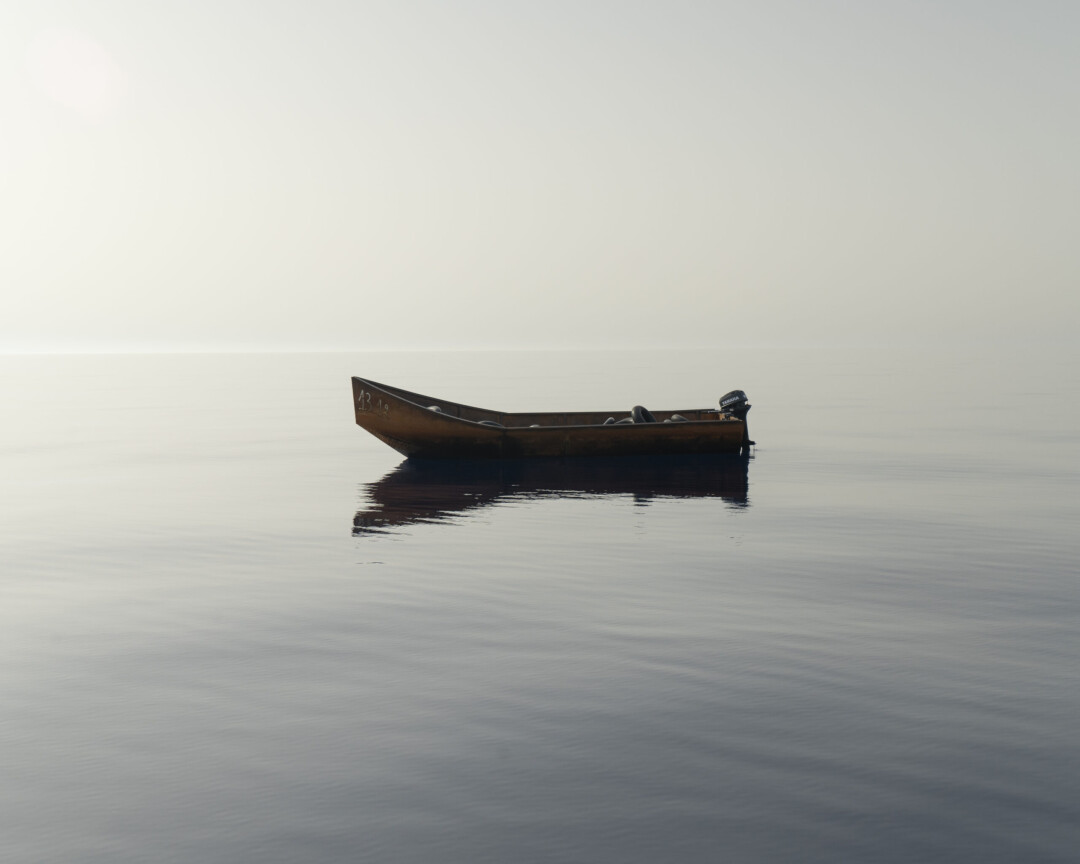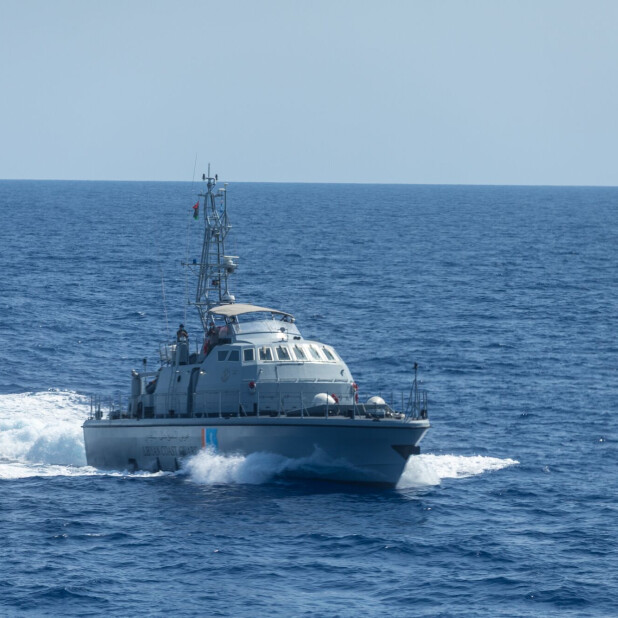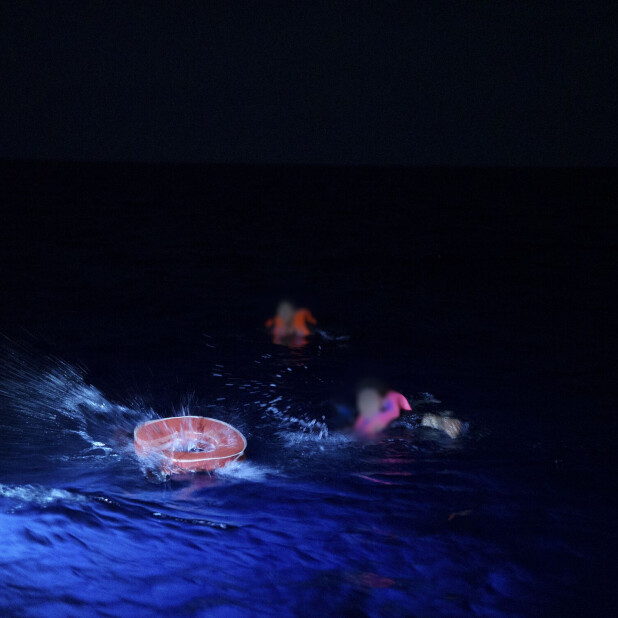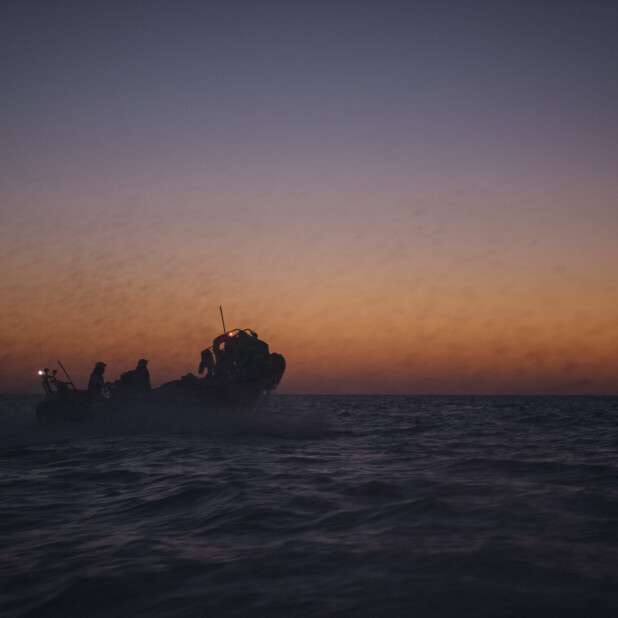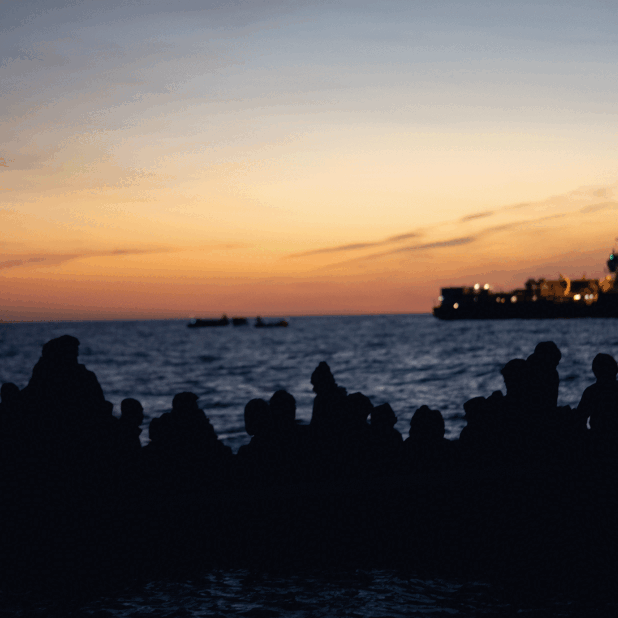
One year after the signing of the agreement between Tunisia and the European Union, serious concerns have arisen about the establishment of an official Tunisian Search and Rescue Region (SRR) at sea by mid-June 2024
. According to the International Maritime Organization (IMO) a Search and Rescue Region is “an area of defined dimensions associated with a rescue coordination center within which search and rescue services are provided “, meaning that the state competent for that area is responsible for coordinating search and rescue activities among the different actors – including NGOs – operating in International waters. Notably, SOS MEDITERRANEE fears that the expansion of the Tunisian SRR may result in more interceptions of shipwrecked people fleeing the shores, being brought back by the Tunisian coast guard to Tunisia, which is not a place of safety.
“A man hunt”: institutionalised racism and xenophobia in the country
This decision comes at a time when reports from international human rights organizations and the local press depict a progressive deterioration of civil liberties and rights in Tunisia, for both migrants and nationals. Black Africans have been specifically targeted since last year when, in February 2023, President Saied blasted “hordes of illegal migrants” as part of a “criminal plan” to “change the demographic composition” by breaking from its “Arab-Islamic affiliation”. Since this announcement, the number of volunteer repatriation requests has notably increased, as has the number of departures at sea.
Physical violence, theft, discrimination, forced displacement in the desert, arbitrary arrest, and endangerment at sea can all be qualified as acts of ill-treatment and torture. People on the move in Tunisia have very limited access to their fundamental freedoms and are subject to regular persecution backed by a wave of xenophobia and institutionalised discrimination. Idrissou*, a young man from Benin who was rescued by Ocean Viking teams last year in August, described a real “man hunt” in Tunisia for Black Africans, eventually leading him to leave the country.
More recently, on Friday 3 May 2024, before dawn, Tunisian security forces evicted hundreds of migrants and refugees, including children, pregnant women, and asylum seekers registered with the UNHCR, who were camping in a public park near the Tunis offices of the IOM and UNHCR. They used teargas and tasers against them, kicking and punching them with batons, including against children. Three days later, in his address to the security council, President Saied indicated that Tunisian security forces forcibly returned 400 people to the Libyan border, in an apparent collective unlawful deportation.
« We saw bodies floating in the water”: violent and dangerous behaviors of the Tunisian Coast Guard at sea
At the same time, at sea, violent and aggressive behaviours of the Tunisian Coast Guard, mainly from the National Guard, have been reported, putting the lives of migrants at sea at risk. A recent report produced in June 2024 by Alarm Phone documents precisely the illegal and violent practices of the Tunisian National Guard in the central Mediterranean.
Several migrants, refugees, and Tunisian nationals rescued by Search and Rescue NGOs at sea denounced the abuses and violence they faced while intercepted, as well as the total absence of a rescue mechanism for boats in distress at sea. Some survivors rescued by Ocean Viking teams in August 2023 told our crew that they witnessed shipwrecks and saw bodies floating in the water close to the beach as well as later during the journey. They reported seeing fish eating these dead bodies. Others reported being intercepted by the Tunisian Coast Guard or approached by fishermen who conducted dangerous maneuvers to steal the engine of the boat they were trying to flee on.
Risks and concerns for the establishment of a Tunisian Search and Rescue Region
The official recognition of a Tunisian Search and Rescue Region (TSRR) extends the geographical jurisdiction of the Tunisian Coast Guard, allowing them to operate over a larger maritime area than in the past.
Notably, the newly established TSRR goes beyond the boundaries of the previously undeclared region, overlapping with parts of the Maltese and Libyan SAR regions, and reaching the borders of the Italian Search and Rescue area.
Therefore, it can be expected that the Tunisian Coast Guard will now operate in areas of the Tunisian route that were previously under the jurisdiction of the Italian authorities. “We fear that the expansion of the Tunisian SRR may result in more interceptions of shipwrecked people fleeing shores, being brought back by Tunisian coast guards to Tunisia, which is not a place of safety” explains Soazic Dupuy, SOS MEDITERRANEE Director of Operations. “The overlapping of SAR regions could also complicate the coordination between the different coastal states, resulting in even less responsiveness in case of distress at sea.”
The forced displacements and the increased interceptions highlight a disrespect for the non-refoulement principle, enshrined in international human rights law, as it applies to all forms of expulsion, regardless of nationality or migration status.
In Tunisia, exiting the country illegally is a crime by law, which inherently contradicts the right to seek asylum in cases of persecution. This law criminalizes Tunisian nationals seeking asylum abroad when they return to their country.
*names have been changed to ensure privacy
